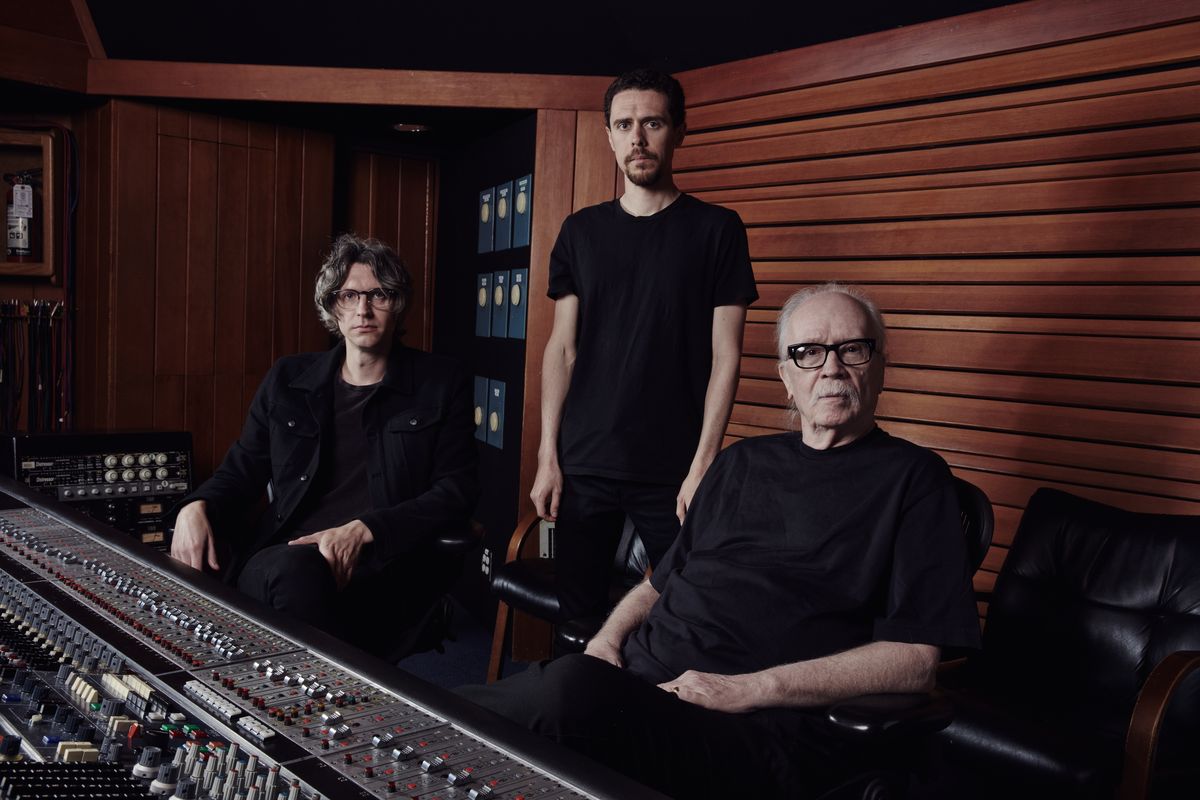John Carpenter waxes about his new album and his time shooting ‘The Ward’ in Spokane

John Carpenter hasn’t directed a film since making “The Ward” in Spokane and Medical Lake in 2009. The maverick writer-director, who has crafted 21 films, has shifted his focus to music.
“I’ve always just been as passionate about music as I’ve been about movies,” Carpenter said during a telephone interview from his Los Angeles home. “The two go hand in hand. It’s just over recent years, I’ve been about music. Film and music have always excited me.”
It’s not uncommon for filmmakers to compose their own soundtracks. Directors such as Clint Eastwood, Robert Rodriguez and Carpenter make films that feature their music. The difference between the acclaimed trio is that Eastwood and Rodriguez have no problem chatting about their contributions to film and music.
Carpenter, an adept keyboardist, is reluctant to talk about the former.
“I hate talking about my own movies,” Carpenter said. “I can’t even watch them!”
Carpenter, 73, has no problem expounding at length about his music. The director of “Halloween,” one of the greatest and most influential horror films of all time, composed and recorded “Lost Themes III: Alive After Death,” which drops Friday, with his keyboardist son Cody Carpenter and guitarist godson Daniel Davies.
The third installment of the “Lost Themes” series is as creepy and ominous as a fan would expect. The new instrumentals sound somehow retro and contemporary since his sonic side has influenced shows such as “Stranger Things” and “Drive,” which aired in 2007.
“I grew up in a house filled with music,” Carpenter said. “My father was a music professor. But I also fell in love with movies.”
Catching “Forbidden Planet” in 1956 as a prepubescent changed Carpenter’s life. “It was the first movie with electronic music, and it’s still just unbelievable,” Carpenter said. “I still go back to that movie.”
Carpenter never watches any of his acclaimed work, which includes hits such as “Starman,” “The Fog” and “Escape From New York.”
“I just can’t sit down and see those films,” he said.
That’s even so for “The Ward,” a supernatural horror film shot on location in Spokane and at Medical Lake’s Eastern State Hospital. Carpenter won’t watch a frame of the film, but he looks back fondly at his Spokane experience.
“Spokane is such a beautiful town,” Carpenter said. “I loved looking at the river. I remember sitting outside of a restaurant that I can’t recall the name of while watching the falls of the river. I really enjoyed my time there. I was in Spokane over a month.
“I ended up doing the movie after signing with new management. They had a script about girls in a mental institution. I had the chance to work with Amber Heard, who is such a great actress. It was a great experience since I had the opportunity to work with an all-female cast for the first time. The movie’s good and features a number of really good performances by the actresses.”
The film fared poorly at the box office and garnered mixed reviews. But like many of Carpenter’s works, “The Ward” has been appreciated more as time passed. The dark, creepy flick is a contemporary snake pit that suffers from a pedestrian story but is elevated by Heard and particularly Mamie Gummer, who is electric at times portraying the film’s most intense character.
“I loved working with Mamie,” Carpenter said. “I don’t know what she’s doing lately.”
Carpenter has no idea about what many performers are up to since he’s been immersed in music. His approach to songs is the opposite of his work as a director. Just about every detail is plotted out before production of a Carpenter film commences. All of Carpenter’s music, dating back to the chilling “Halloween” soundtrack, is created extemporaneously.
“It’s all improvisation,” Carpenter said. “I love to create music, organize it and title it later. Making music is a labor of love.”
Carpenter still has his hand in the world of film. Carpenter was executive producer, co-composer and creative consultant on the latest “Halloween” film, which hit screens in 2018. The movie acts as a direct sequel to Carpenter’s original film and ignores all of the other “Halloween” movies. It marked Carpenter’s first involvement with the megafranchise since 1982’s “Halloween III: Season of the Witch.”
“I really like where ‘Halloween’ is now,” Carpenter said. ” I like what he (director David Gordon Green) did with the movie, and it was so great that Jamie Lee Curtis came back. The story is very good, and we (Carpenter, Cody Carpenter and Daniel Davies) really enjoyed making the soundtrack.”
A pair of “Halloween” sequels, “Halloween Kills,” slated for an October release, and “Halloween Ends,” set for release in 2022, are films to look forward to, which will add to Carpenter’s bank account.
“There’s nothing wrong with that,” Carpenter said.
When pressed, Carpenter looks back fondly on “Halloween.
“I wanted to make the kind of film that I would like to see even though I don’t go back and watch it,” Carpenter said. “It worked out.”
The same can be said for a number of Carpenter’s films, which live on courtesy of film fans. Four of Carpenter’s movies, “Escape From New York,” “Big Trouble in Little China,” “They Live” and “The Thing,” made the Ringer’s “50 Best Cult Films of All Time” list, which was released last week.
“It doesn’t suck,” was Carpenter’s response when asked about how it feels for his work to be featured prominently on such a list.
“I can’t complain how well my films have done,” Carpenter said. “That success has allowed me to focus on music, which is great.”